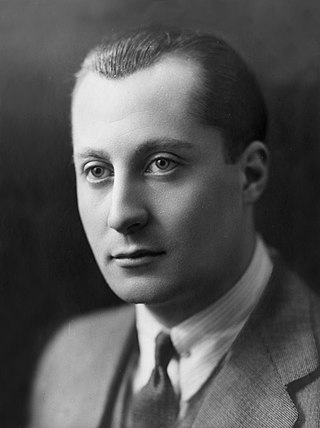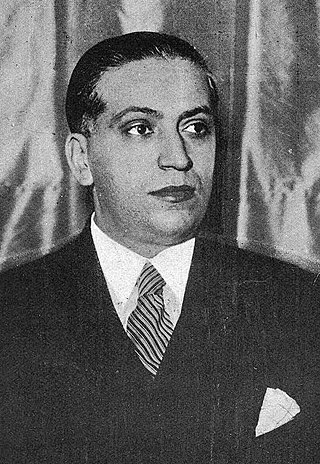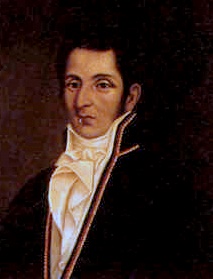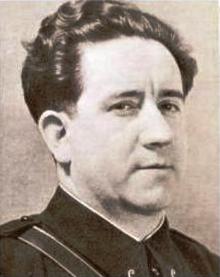 | |
| Categories | Political magazine |
|---|---|
| Frequency | Weekly |
| Founded | 1931 |
| Final issue | 1931 |
| Country | Spain |
| Based in | Madrid |
| Language | Spanish |
La Conquista del Estado (English: "The Conquest of the State") was a magazine based in Madrid, Spain. [1]
 | |
| Categories | Political magazine |
|---|---|
| Frequency | Weekly |
| Founded | 1931 |
| Final issue | 1931 |
| Country | Spain |
| Based in | Madrid |
| Language | Spanish |
La Conquista del Estado (English: "The Conquest of the State") was a magazine based in Madrid, Spain. [1]
La Conquista del Estado was launched in 1931 by Ramiro Ledesma Ramos. [2] [3] The first issue, issued on 14 March 1931, contained a manifesto in which National Syndicalism was elaborated. Ledesma's idea was to win over the Confederación Nacional del Trabajo (CNT), the then dominant trade union movement in the country, to a form of national corporatism. The ideas in the essay were discussed during the CNT congress in the summer of 1931 without being approved.
On the other hand, despite the magazine being inspired from the views of Adolf Hitler, [2] the founders of the magazine did not endorse his views on racism and argued that it should be replaced with the notion of Spain's imperial past. [2]
Members of the organizing committee of La Conquista del Estado were Ramiro Ledesma Ramos (president), Juan Aparicio López (secretary), Ernesto Giménez Caballero, Ricardo de Jaspe Santoma, Manuel Souto Vilas, Antonio Bermúdez Cañete, Francisco Mateos González, Alejandro M. Raimúndez, Ramón Iglesias Parga, Antonio Riaño Lanzarote and Roberto Escribano Ortega.
The small group around La Conquista del Estado was based in the universities of Madrid. On 10 October the group around La Conquista del Estado merged with the Valladolid-based Junta Castellana de Actuación Hispánica to form the Juntas de Ofensiva Nacional-Sindicalista. [4]
In total 23 issues of La Conquista del Estado were published during 1931. Generally the publication was weekly, but was suspended during August and September. The last issue was published on 24 October.

The Falange Española de las Juntas de Ofensiva Nacional Sindicalista, was a fascist political party founded in Spain in 1934 as merger of the Falange Española and the Juntas de Ofensiva Nacional-Sindicalista. FE de las JONS, which became the main Fascist group during the Second Spanish Republic, ceased to exist as such when, during the Civil War, General Francisco Franco merged it with the Traditionalist Communion in April 1937 to form the similarly named Falange Española Tradicionalista y de las JONS.

José Antonio Primo de Rivera y Sáenz de Heredia, 1st Duke of Primo de Rivera, 3rd Marquess of Estella GE, often referred to simply as José Antonio, was a Spanish politician who founded the falangist Falange Española, later Falange Española de las JONS.

José Calvo Sotelo, 1st Duke of Calvo Sotelo, GE was a Spanish jurist and politician, minister of Finance during the dictatorship of Miguel Primo de Rivera and a leading figure during the Second Republic. During this period he became an important part of Renovación Española, a monarchist movement. His assassination in July 1936 by the bodyguard of Socialist party leader Indalecio Prieto was an immediate prelude to the triggering of the military coup plotted since February 1936, the partial failure of which marked the beginning of the Spanish Civil War.
Juntas de Ofensiva Nacional-Sindicalista was a nationalist and fascist movement in 1930s Spain. In 1934, it merged with the Falange Española into the Falange Española de las JONS.

Falange Española was a Spanish fascist political organization active from 1933 to 1934.

Ramiro Ledesma Ramos was a Spanish philosopher, politician, writer, essayist, and journalist, known as one of the pioneers in the introduction of Fascism in Spain.

Ramiro de Maeztu y Whitney was a prolific Spanish essayist, journalist and publicist. His early literary work adscribes him to the Generation of '98. Adept to Nietzschean and Social Darwinist ideas in his youth, he became close to Fabian socialism and later to distributism and social corporatism during his spell as correspondent in London from where he chronicled the Great War. During the years of the Primo de Rivera dictatorship he served as Ambassador to Argentina. A staunch militarist, he became at the end of his ideological path one of the most prominent far-right theorists against the Spanish Republic, leading the reactionary voices calling for a military coup. A member of the cultural group Acción Española, he spread the concept of "Hispanidad" (Spanishness). Imprisoned by Republican authorities after the outbreak of the Spanish Civil War, he was killed by leftist militiamen during a saca in the midst of the conflict.

Manuel Rodríguez Torices was a Neogranadine statesman, lawyer, journalist, and Precursor of the Independence of Colombia. He was part of the Triumvirate of the United Provinces of New Granada in 1815, and served as Vice President of the United Provinces after the triumvirate. He was executed during the Reign of Terror of Pablo Morillo in 1816.

Onésimo Redondo Ortega was a Spanish Falangist politician. He founded the Juntas Castellanas de Actuación Hispánica, a political group that merged with Ramiro Ledesma's Juntas de Ofensiva Nacional-Sindicalista and José Antonio Primo de Rivera's Falange Española.
Ernesto Giménez Caballero, also known as Gecé, was a Spanish writer, diplomat, and pioneer of Fascism in Spain. Director and founder of the avant-garde magazine La Gaceta Literaria (1927-1932), his work has been categorized as being part of the Futurist and Surrealist movement, while Stanley G. Payne has described him as the Spanish Gabriele d'Annunzio.

Joan Peiró i Belis was a Catalan anarchist activist, writer, editor of the anarchist newspaper Solidaridad Obrera, two-time Secretary General of the Confederación Nacional del Trabajo and Minister of Industry of the Spanish government during the Spanish Civil War.

Acción Española or AE was a Spanish cultural association active during the Second Spanish Republic, meeting point of the ultraconservative and far right intellectual figures that endorsed the restoration of the Monarchy. It was also a political magazine of the same name. The group was heavily influenced by Action Française both in its name and its ideology. Constituted in October 1931, the cultural association was inaugurated on 5 February 1932, following the founding of the journal on 15 December 1931.

The symbols of Francoism were iconic references to identify the Francoist State in Spain between 1936 and 1975. They serve as visual illustrations for the ideology of Francoist Spain. Uniforms were designed for men and women that combined elements of the earlier Falangist and Carlist uniforms. The state developed new flags and escutcheons based on the traditional heraldry of the monarchy, but now associated with the state. The emblem of five arrows joined by a yoke was also adopted from earlier Spanish symbology, but after 1945 the arrows always pointed upward. This emblem appeared on buildings, plaques and uniforms.

The Institución Libre de Enseñanza was a pedagogical experience developed in Spain for more than half a century (1876-1939). It was inspired by the Krausist philosophy introduced at the Central University of Madrid by Julián Sanz del Río, and had an important impact on Spanish intellectual life, as it carried out a fundamental work of renewal in Restoration Spain.

Pablo Yagüe Estebaranz was a Spanish trade union leader and communist politician. During the Spanish Civil War (1936–39) he was briefly in charge of Supplies for the Madrid Defense Council, before being shot and badly wounded at an Anarchist roadblock. After the war he lived in hiding in Spain for some time, then was arrested, tried and executed.

Antonio Mije García was a member of the Spanish Communist Party who became a deputy for Seville in the Second Spanish Republic. He served in various senior positions during the Spanish Civil War (1936–39). After the war he lived in France, Mexico and Czechoslovakia. He managed to retain his position as a party executive during the internecine struggles of the long years of exile.

Gustavo Morales y Delgado is a Spanish journalist, periodist and former politician. He is the former deputy director of the newspaper El Rotativo and former editor of the newspaper Ya. He has collaborated as a military analyst with BBC and Russia Today. He won the Carlos V Award for Journalism, two orders of Merit and Palma de Plata.
The history of the far-right in Spain dates back to at least the 1800s and refers to any manifestation of far-right politics in Spain. Individuals and organizations associated with the far-right in Spain often employ reactionary traditionalism, religious fundamentalism, corporate Catholicism, and fascism in their ideological practice. In the case of Spain, according to historian Pedro Carlos González Cuevas, the predominance of Catholicism played an essential role in the suppression of external political innovations such as Social Darwinism, positivism, and vitalism in Spanish far-right politics.
Antonio Ejarque Pina was an Aragonese anarchist.
Vértice was a monthly Falangist magazine published in San Sebastián, Spain, between 1937 and 1946. Its subtitle was Revista nacional de la Falange. From late 1937 it was changed to Revista nacional de Falange Española Tradicionalista y de las J.O.N.S. The magazine was one of the early propaganda publications which supported the rule of Francisco Franco.